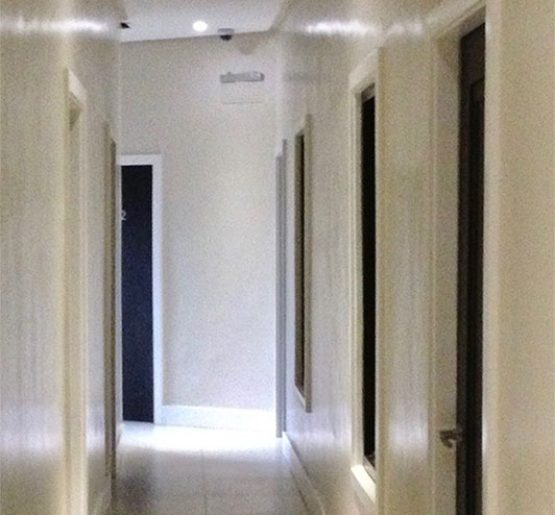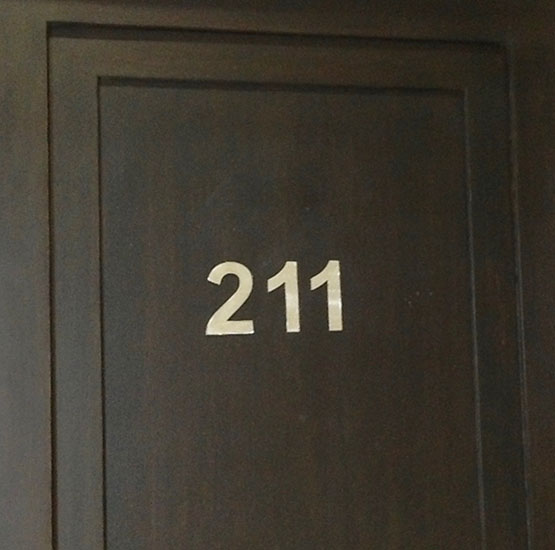An Extraordinary View

Our first home in the Philippines was a small room on the inside hall of a downtown hotel in Tacloban City. It was clean, comfortable, and (thankfully!) air-conditioned. Although we didn’t spend a lot of time there, Room 211 quickly became our haven in the midst of the devastation and sadness that permeated every square inch of the city.
It’s ironic as we think about it now. The place where God first began to show us that part of His world didn’t even contain a window. Instead, He provided us a view that we never could have seen through ordinary glass and panes. This window was wide open, not protected by lock or screen, and each time God drew us to it, He taught us something new.
For example, Jim and I had always loved having friends and family over to our house in the States, and naturally, thought we were hospitable people. We’d prepare special meals, use our nicer dinnerware, clean the house until it sparkled, and place a bouquet of pretty flowers on the table. It wasn’t just for show either – we really cared about our guests and wanted them to enjoy the time they spent with us. But in 2014, God began teaching us about a whole different kind of hospitality…
Looking through God’s window, we learned that true hospitality is immediate and ever-present; you don’t just take it out for ‘company.’ It’s welcoming and sincere, not dependent on the amount or type of food in your pantry. It’s focused on other people and driven by a humble willingness to share what’s yours (even when you have no food and your house has been washed out to sea). The plastic plates and bowls we purchased before we came back to the States serve as a daily reminder to us of how the people welcomed us into their lives, always willing to share the little they had, even as they walked through the most difficult season of their lives.
Before our time in the Philippines, I also thought we were good listeners. When family or friends were going through trials, they often asked to talk with one or both of us. I was pretty sure Jim and I could connect with anyone, in any trial.
Through this new window, though, God taught us that we cannot always empathize with someone who is experiencing tragedy and grief on a scale that we, most likely, will never know and cannot imagine. Jim and I listened as people told us the stories of where they were, what they saw, and what happened to them and their families when Typhoon Yolanda arrived in the pre-dawn hours of November 8, 2013.

I recall a specific conversation that occurred early on in our time there. I had traveled a distance out from the city to visit an area I’d been introduced to when Jim’s team was working there. On this day, I met a woman who started a conversation with me as our path’s crossed at the community’s Barangay Hall. We sat in a small, hot room at the front of the sparsely furnished building, and soon, she began to share with me what she had experienced on that horrific day. She described losing nine of her family members during the typhoon, all in less than an hour. Terrified, she had clung to a branch as the high winds and cold, dark, raging waters threatened her grip and swept her away from her home and the people she loved. Tears welled up in my eyes as she recounted her nightmare, but as soon as she noticed my tears, she stopped talking. She put her hand on my arm and said, ‘I’m so sorry… I didn’t mean to make you sad.’
God taught me something very important as I wiped away my tears. The goal isn’t always to empathize. Sometimes it’s more important to just listen, be fully present, and be respectful of the person’s story, realizing that we cannot put ourselves in everyone’s shoes and feel what they feel. Even after that day, I was overwhelmed at times as I listened and tried to process the weight of people’s losses. There were still times when I shed tears, but God was faithful to provide me the strength to wait until I was alone to cry. He taught me that doing otherwise only served to shift the focus off the one who was suffering and onto me.
Perhaps the biggest truth God showed us through His window is that He cares deeply about the weak, the poor, the vulnerable, and the oppressed. He made it abundantly clear that we are to care, too. The prophet Isaiah describes what this compassion involves: undoing the straps of the yoke, letting the oppressed go free, sharing our bread with the hungry, bringing the homeless poor into our homes, and covering the naked… (see Isaiah 58:6-7).
In 2014, our first home in the Philippines was a quiet, windowless room. Little did we know that we didn’t need a window in that room! Instead, God gave us an extraordinary view from a window not made of glass or panes, one that only He could have constructed for us. Through that window, he allowed us to see the pain and suffering of many people, all made in His image. He taught us that we weren’t all we thought we were. But in our weakness, He proved Himself strong. He gave us new eyes to see His relentless compassion for the poor. Surely, it is in God’s strength alone that any of us can love this way.

‘By this we know love, that He laid down His life for us, and we ought to lay down our lives for the brothers’ (I John 3:16).
